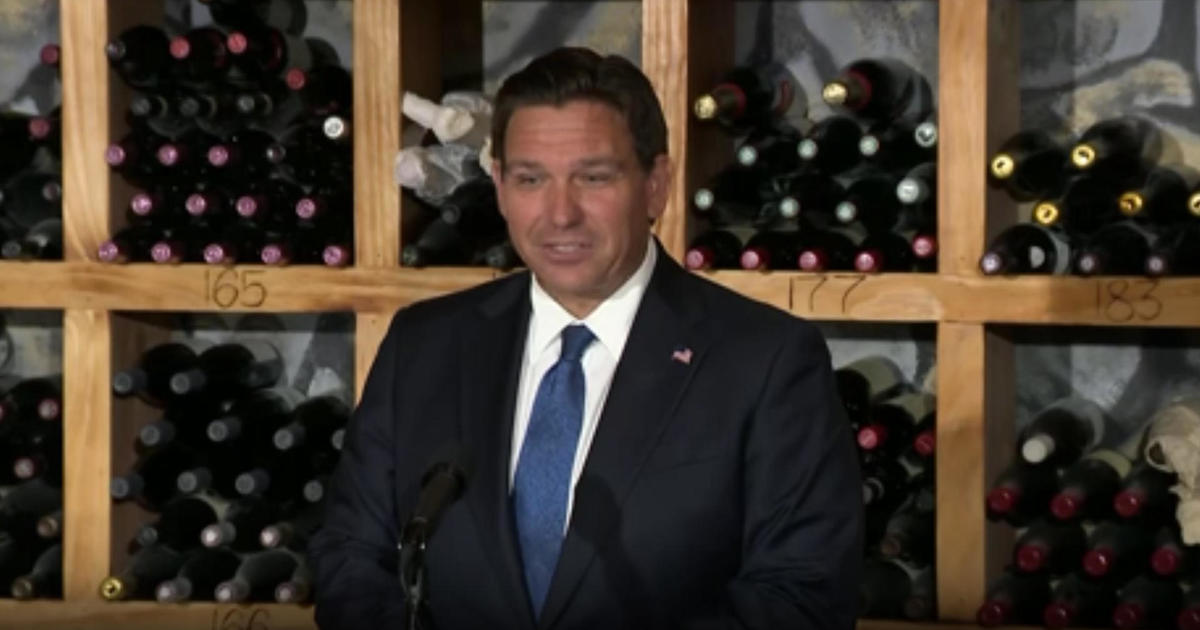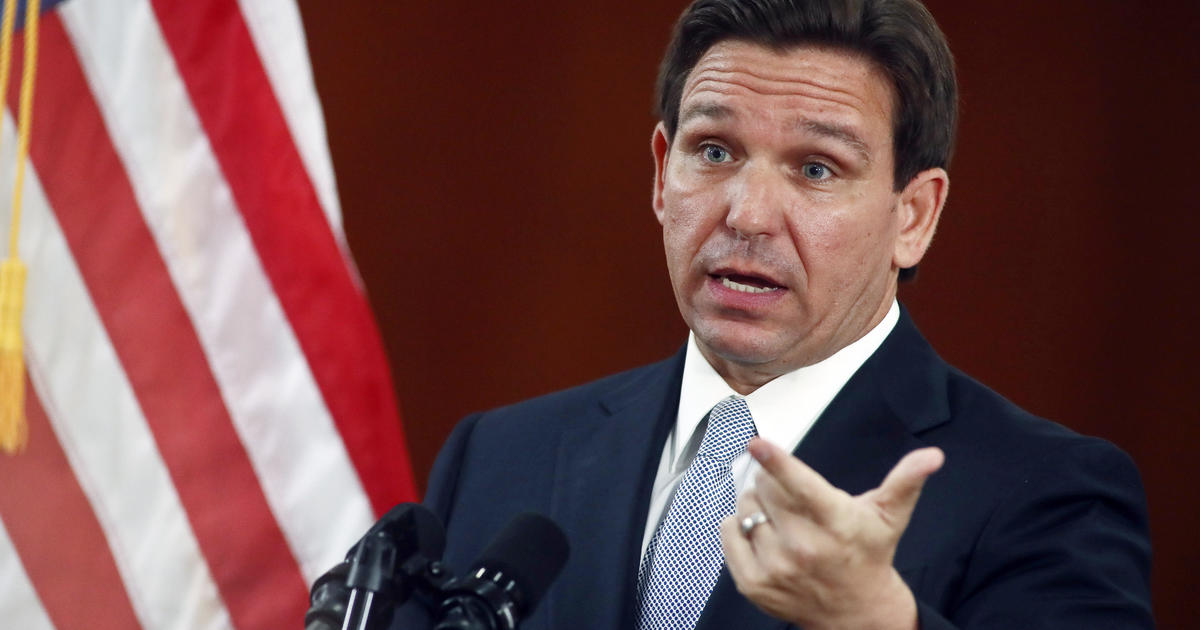Session Ends As Budget Is Approved
Follow CBSMIAMI.COM: Facebook | Twitter
TALLAHASSEE (NSF) – After a last-minute episode of intrigue eight years in the making, the 2016 legislative session came to an end Friday night, as lawmakers approved an $82.3 billion budget, a tax-cut package a fraction of the size suggested by Gov. Rick Scott and a raft of other legislation.
Despite the late flurry of bills on everything from education to health care to transportation, the endgame was more orderly than the chaotic implosion of last year's session, which saw House lawmakers leave the Capitol without finishing a budget --- a move that sparked a special session.
Instead, both chambers approved the spending plan for the year that begins July 1 by broad, bipartisan margins. The House voted 119-1 to pass the proposal (HB 5001); only Rep. John Tobia, a Melbourne Beach Republican who usually opposes the budget, voted against it. Moments later, the 40-member Senate voted unanimously to send the package to Scott.
And despite the fact that lawmakers curtailed or scuttled his two main priorities --- a tax cut package and $250 million in economic development incentives --- Scott suggested he wouldn't extract vengeance on lawmakers with his line-item veto.
"I'm going to clearly go through the budget and make sure that we don't waste any money, look at ways we can save money," Scott said after the session ended. "But I think it's a good budget."
The spending plan approved Friday bumps up per-student spending on public schools by 1 percent, moving it to a record amount. It spends more than $713.5 million on education construction projects and funds $151 million for restoration of the Everglades and an area lawmakers are calling the Northern Everglades.
At the same time, lawmakers approved a $129.1 million package of tax breaks (HB 7099), a sliver of the $1 billion proposal that Scott had sought. Combined with a proposal to hold local education property taxes down despite rising real-estate values, lawmakers spent $400 million on tax relief of some sort.
Scott nonetheless declared victory on a 2014 re-election campaign promise to reduce taxes by $1 billion over the first two years of his second term. He counted the education tax fix --- a Senate priority --- as $428 million, the amount that property owners will actually save on their bills. And he rolled together an array of other tax cuts and holidays approved over the last two sessions into the number.
"Everybody comes up here with their ideas," Scott said. "I doubt that there's any tax I wouldn't like to cut ... What's important is we're giving money back."
Scott announced plans to visit five cities Monday as part of a "Million, Billion Jobs Victory Tour," an allusion to the size of the tax cuts and the million private-sector jobs that have been created since he took office in 2011.
Critics saw things very differently, noting that Scott's priorities were largely gutted by the Legislature as questions began to circulate about whether the second-term governor was now a lame duck.
"The 2016 legislative session may well go down in the history books as the year that the Florida lawmakers formally declared their independence from Gov. Scott," said Senate Minority Leader Arthenia Joyner, D-Tampa.
Even friendly legislators like Senate Appropriations Chairman Tom Lee, R-Brandon, seemed to hint that it took some creative math to say Scott had accomplished his objectives on tax cuts.
"As you've seen from the presidential campaign trail, sometimes political accounting, what goes on the bumper sticker and what is actually impactful to the people is a different number," Lee told reporters after the session.
What the Legislature approved also proved to be too much for others. Sen. Jeff Clemens, D-Lake Worth, highlighted a variety of areas where, he suggested, Florida didn't spend enough.
"If I'm going to choose where I want us to spend our public tax dollars and what I want us to do with our money, it's to fix all these problems and not to give tax breaks, which include pear cider this year," Clemens said.
The end to the session also survived an injection of suspense, as the Senate continued to work on an insurance change for those with Down syndrome while the tax package languished. The insurance measure --- a priority of Senate President Andy Gardiner, an Orlando Republican whose son has Down syndrome --- would require health plans offered by large employers to cover the condition.
Patients with Down syndrome and other developmental disabilities had been left out of a similar piece of legislation in 2008, when Gardiner was in the House.
"Eight years ago, we ended session with an issue that was not resolved. It got resolved tonight," he said proudly.
But the session went later than expected as lawmakers bounced the bill including the provision (HB 221) back and forth between the chambers. Afterwards, Gardiner said the House and Senate were simply trying to get the language right.
And he denied rumors that the tax cut package or a House bill on the environment, known as "Legacy Florida," hinged on the success of the Down syndrome legislation.
"There was no holding of anything ... We always intended to do the tax package and Legacy Florida," Gardiner said. "We just wanted to get that (insurance bill) done."
The News Service of Florida's Brandon Larrabee contributed to this report.



